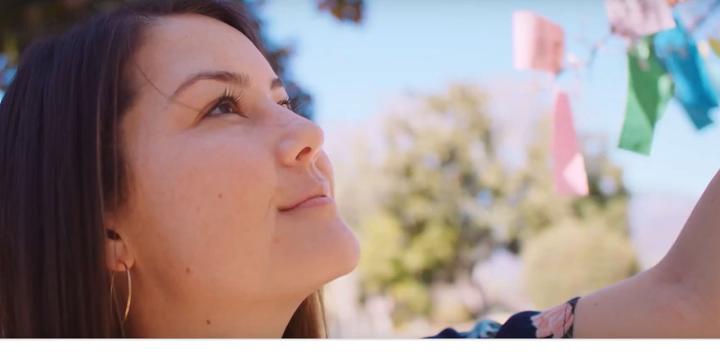Childhood, Adolescent and Young Adult Survivorship Program
The Childhood, Adolescent and Young Adult (AYA) Cancer Survivorship Program at City of Hope provides specialized follow-up care for patients who were diagnosed with a childhood cancer or those who underwent a bone marrow transplantation for a non-malignant disease before 40 years of age. All patients must have completed their treatment for at least two years prior to enrolling in the program.
Program Highlights
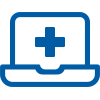
Our goal is to help each survivor stay as healthy as possible by preventing problems from happening or catching them early, when they are most treatable. Patients who participate in this program are seen annually in a clinic designed to meet the long-term follow-up needs of survivors of childhood, adolescent and young adult cancer. A team of health care professionals with expertise in survivorship issues, including a physician or nurse practitioner, a dietitian, and a psychologist or social worker, evaluates them. They also receive:
- Individualized screening and monitoring for potential health issues that sometimes occur after cancer treatment. Patients can talk with the survivorship team about their previous cancer treatment, its potential impact on their health and ways to stay as healthy as possible.
- A personalized summary of the details of their cancer treatment and guidelines for continued monitoring, including recommendations for preventive care and information about available resources and services
- Telehealth (virtual) and in-person appointments
This program is carried out in collaboration with each patient’s primary health care and treatment team and is part of the research program here at City of Hope. Our staff communicates with other health care providers and refers to specialists as needed.
Program Eligibility
- Diagnosis of cancer before 40 years of age
- Types of cancer can include leukemia, lymphoma, sarcoma, germ cell tumor, brain and spinal tumor or other types of childhood cancers
- Patients with sickle cell disease or other blood disorders requiring a bone marrow transplant before 40 years of age
- At least two years since completion of cancer treatment and currently in remission
- Patients can participate in this program regardless of current age
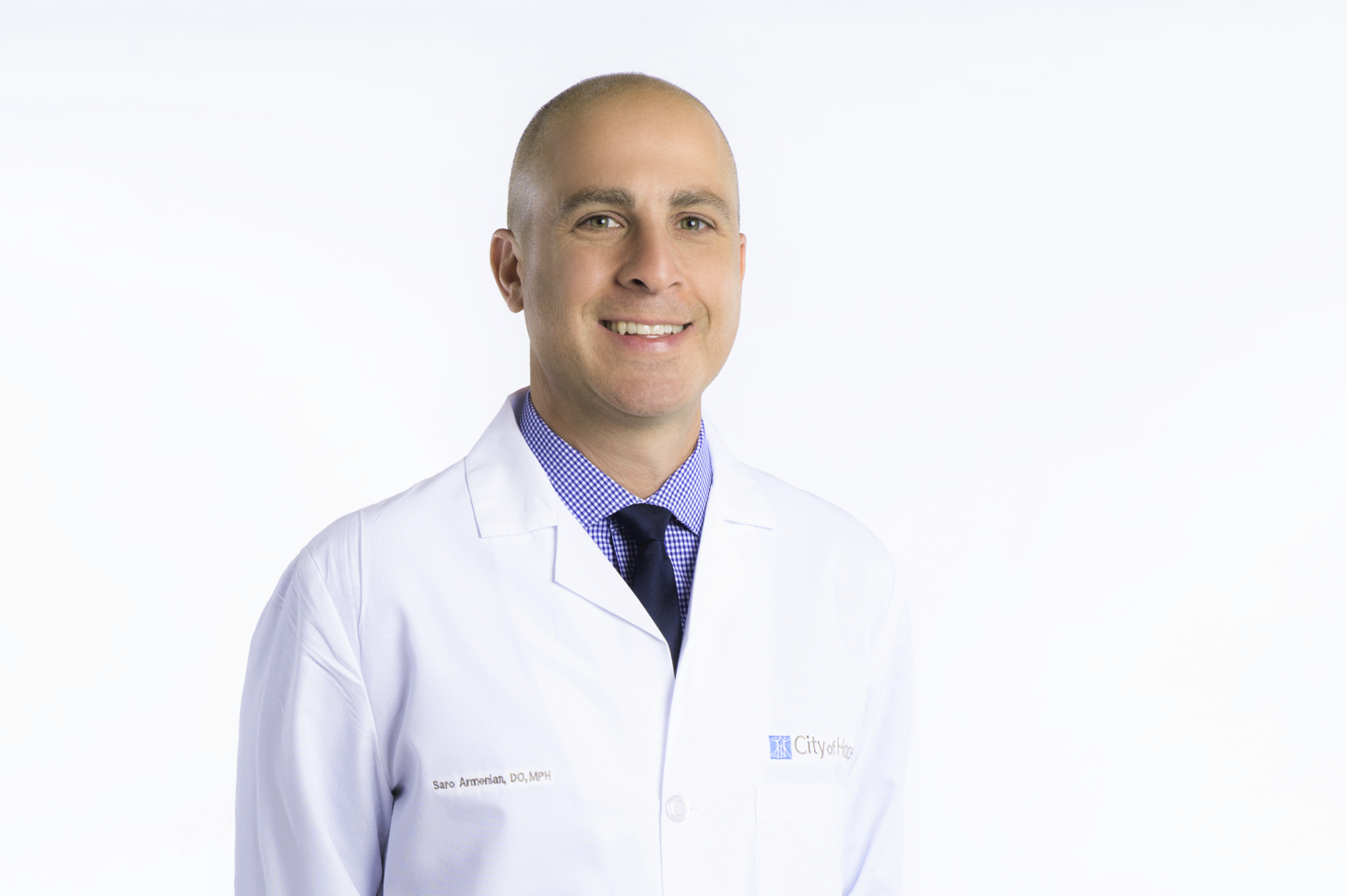
Pediatric hematologist-oncologist Saro Armenian, D.O., M.P.H., is the Barron Hilton Chair in Pediatrics, with expertise in pediatric cancer, epidemiology and cancer survivorship.
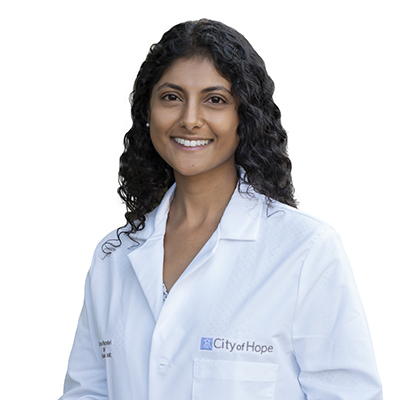
Rusha Bhandari, M.D., M.S., is an assistant professor in the Department of Pediatrics and Department of Populations Sciences at City of Hope.
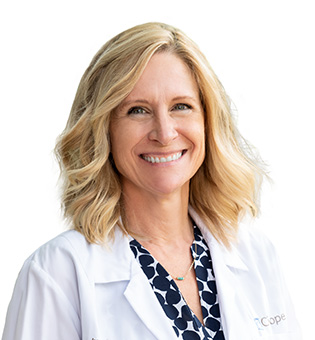
Jeanelle Folbrecht, Ph.D., psychologist | City of Hope, California.
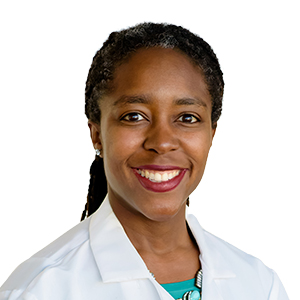
Natalie Kelly, Ph.D., ABPP-CN, is an associate clinical professor of psychology and clinical neuropsychologist, Division of Psychology, in the Department of Supportive Care Medicine.
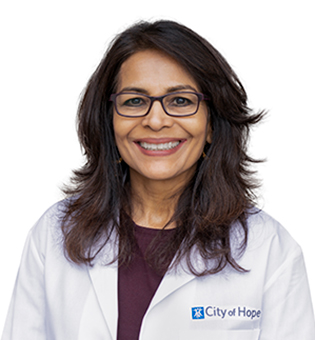
Sunita Patel, Ph.D., is an associate professor in the departments of Supportive Care Medicine and Population Sciences.
Childhood cancer survivors are people who were diagnosed with cancer prior to turning 22 years of age.
AYA cancer survivors are people diagnosed with types of cancers that occur primarily in children and adolescents but are between the ages of 15-39 years of age when diagnosed.
- These types of cancers include leukemia, lymphoma, germ cell tumors, bone and soft tissue sarcomas, certain types of brain tumors and other forms of solid tumors that occur primarily in young children but can also occur in the AYA population.
- AYA patients may have had their cancer treatment provided by either pediatric or adult oncology (cancer) specialists.
- We do not see AYA patients whose primary cancers are considered “adult” cancers, such as breast, colon, lung, and pancreatic cancers.
- The progress made with cancer treatments has led to a large number of cancer survivors.
- It is now known that cancer survivors can develop problems known as “late effects” related to their treatment.
- Evaluation and follow-up by a team of cancer survivorship specialists is now an important part of routine healthcare for childhood and AYA cancer survivors by:
- Leading to early detection and treatment of health problems.
- Providing education on improving the well-being of survivors.
- Late effects are health problems that remain after treatment has been completed or occur months or years after treatment has ended and may be caused by the cancer or by its treatment.
- Late effects may be related to physical, mental and social problems or a second cancer and can include issues related to
- Growth, learning, hearing or vision difficulties, muscle/skeletal issues, organ function, hormone production, fertility problems.
- Second cancers that are directly related to the cancer treatment.
We are a clinical research program that:
- Has no upper age limit for patients to attend the program (many children’s hospitals are unable to follow patients after the age of 21).
- Screens patients for late effects of treatment based on established national guidelines which are developed by the survivorship research community and can be found at survivorshipguidelines.org.
- Identifies complications of childhood and AYA cancer treatment to develop treatment or preventative measures for these complications.
- Develops interventions aimed at improving the quality of life in childhood and AYA cancer survivors.
- Collaborates with other cancer research programs to report significant findings to the general medical community through scientific meetings and publications.
- Provides access to other research protocols specific to childhood and AYA cancer survivors
- When you are in remission and are at least two years from completion of cancer treatment.
- You may still be receiving supportive care treatments such as therapies to treat chronic graft versus host disease following bone marrow transplantation.
- To learn the potential risk factors that you may have for developing late effects of cancer treatment including:
- Discussing any myths that you may have heard related to your cancer diagnosis and treatment.
- Providing you with late effects education as well as tools that will help you become your own health advocate.
- Contribute to research that improves:
- Quality of life for cancer survivors.
- Upfront cancer treatments to decrease late effects.
- Providing a comprehensive summary that reviews your complete treatment history that includes:
- Personal medical and family history.
- All treatments that you may have received (surgery, chemotherapy, biotherapy, stem cell transplant and radiation therapy).
- Total doses of chemotherapy.
- Location of radiation and its total dose.
- Complications or toxicities that occurred during treatment.
- The summary will also be available on your patient portal (My Chart).
- Assessment of current health and identification of late effects through:
- A physical exam by a doctor or nurse practitioner who specializes in survivors such as yourself.
- Diagnostic tests (labs, echocardiogram, etc.) determined by your treatment history.
- Dietary assessment and evaluation by a registered dietician with appropriate counseling related to:
- Diet and supplement requirements.
- Exercise recommendations.
- Psycho-social, educational and vocational assessment by a psychologist who may recommend:
- Evaluation by a neuropsychologist for in-depth learning assessment if indicated.
- Referral to a school re-entry specialist if needed.
- Referral to sub-specialists if problems are identified.
- Providing resources related to:
- Support organizations for patients and family members.
- Obtaining health insurance or low-cost clinics.
- Scholarships for students.
Before the visit
- Signing of an informed consent since this is a clinical research program.
- Signing a release of information to obtain medical records (if you were treated outside City of Hope).
- Completing online questionnaires.
During the visit
- Diagnostic exams and laboratory tests (as described under program services).
- Evaluation by members of the survivorship team (as described under program services).
- Sign up for MyChart so you can receive all diagnostic tests and summary electronically.
After the visit
- Phone call or televideo appointment from nurse practitioner or doctor to review any diagnostic test or lab results that were not available during the visit.
Yes, the survivorship program does not replace your primary oncology team, and we encourage you to follow up with them based on their recommendations.
- While we do perform specific health screenings, the survivorship program does not provide routine healthcare (e.g. sick visits, ongoing management of specific health conditions). However, with your permission we are happy to communicate with your primary health care provider (HCP) or other medical specialist that you see by providing a summary of your survivorship visit including results of any diagnostic tests.
- In general, we encourage all patients to have an HCP such as a pediatrician, family doctor, internist, nurse practitioner (NP) or physician assistant (PA).
- Until the age of 21 years, patients will be seen annually.
- After the age 21 years, your specific situation will determine the frequency of return.
- Assistance with transition to adult care and education of non-oncology medical providers related to survivorship issues will be provided.
Email us at survivorship@coh.org and one of our specialists can give you information about other studies.
For more information please contact us at 626-218-5542 or email us at survivorship@coh.org.
